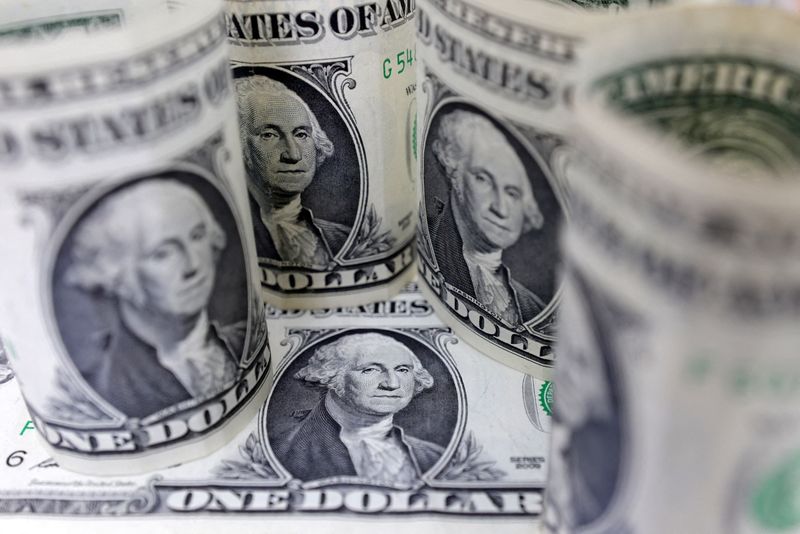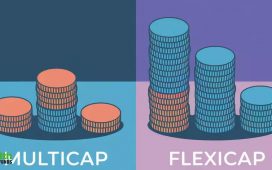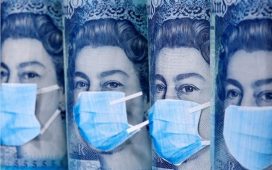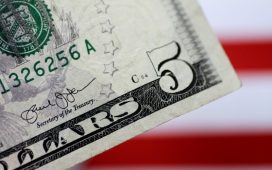By Tom Westbrook
SINGAPORE (Reuters) -The dollar traded below recent peaks on Thursday as investors waited on this week’s U.S. labour data to guide the interest rate outlook, while the battered yen slid against other majors.
An unexpected slowdown in U.S. services growth had knocked the dollar lower on Wednesday. For the year so far it remains the best-performing G10 currency as rate cut expectations have been dialled back dramatically over the last few months.
That has punished the yen most of all because even after Japan’s first rate hike in 17 years in March, short-term Japanese rates remain near zero and U.S. rates are above 5%.
The yen was supported at 151.70 per dollar by the threat of official intervention. Other pairs were not so protected. Against the Canadian dollar, the yen made a 16-year low on Wednesday and traded near there on Thursday.
The yen was its weakest in two weeks at 164.50 per euro and not far from March’s 16-year trough of 165.37. Yen volatility gauges have crept up this week, perhaps in case a sharp reaction to U.S. labour data prompts an official response.
“Some degree of intervention is arguably necessitated if indeed dollar/yen breaks above (152),” said Mizuho chief economist, Asia ex-Japan, Vishnu Varathan. “If nothing else, to follow through on the warning on grounds of credibility.”
The euro, up 0.6% on Wednesday, was up a further 0.1% on Thursday and back to the middle of a range it has kept for a year at $1.0844.
European inflation came in softer-than-expected on Wednesday, reinforcing expectations for a European rate cut in June.
Also on Wednesday U.S. Federal Reserve Chair Jerome Powell made balanced and familiar remarks noting policymakers will be guided by economic data.
Traders focused on his view that recent figures had not changed his broad outlook, and his reminder that “most FOMC participants see it as likely to be appropriate to begin lowering the policy rate at some point this year.”
“The speech broadly affirmed the Fed is on track to cut rates this year, with data determining the timing. We think by July, the (Fed) will likely have sufficient confidence to begin cutting rates,” said analysts at ANZ.
Futures pricing was broadly steady and implied markets see about a 60% probability of a Fed cut in June.
Traders gave a leg up to the Australian and New Zealand dollars in response, sending the above its 200-day moving average and to a two-week high of $0.6587.
The Aussie is at a five-month high on the New Zealand dollar with traders expecting New Zealand rate cuts beginning in August but Australian rates on hold until November. [AUD/]
The New Zealand dollar has regained a foothold above $0.60 and was last trading 0.3% firmer at $0.6029.
bought $1.2650 – also in the middle of a range it has kept since December. [GBP/]
Chinese markets were closed for a holiday.

The , up 2.8% this year as market expectations for some 150 basis points of U.S. rate cuts this year have been sliced in half, was last at 104.17. It made a four-and-a-half-month high of 105.10 on Tuesday.
PMI readings are due in Europe later on Thursday, as is the readout from last month’s European Central Bank meeting. The major focus for the rest of the week will be on U.S. labour data due on Friday. Economists expect 200,000 jobs were added in March.











